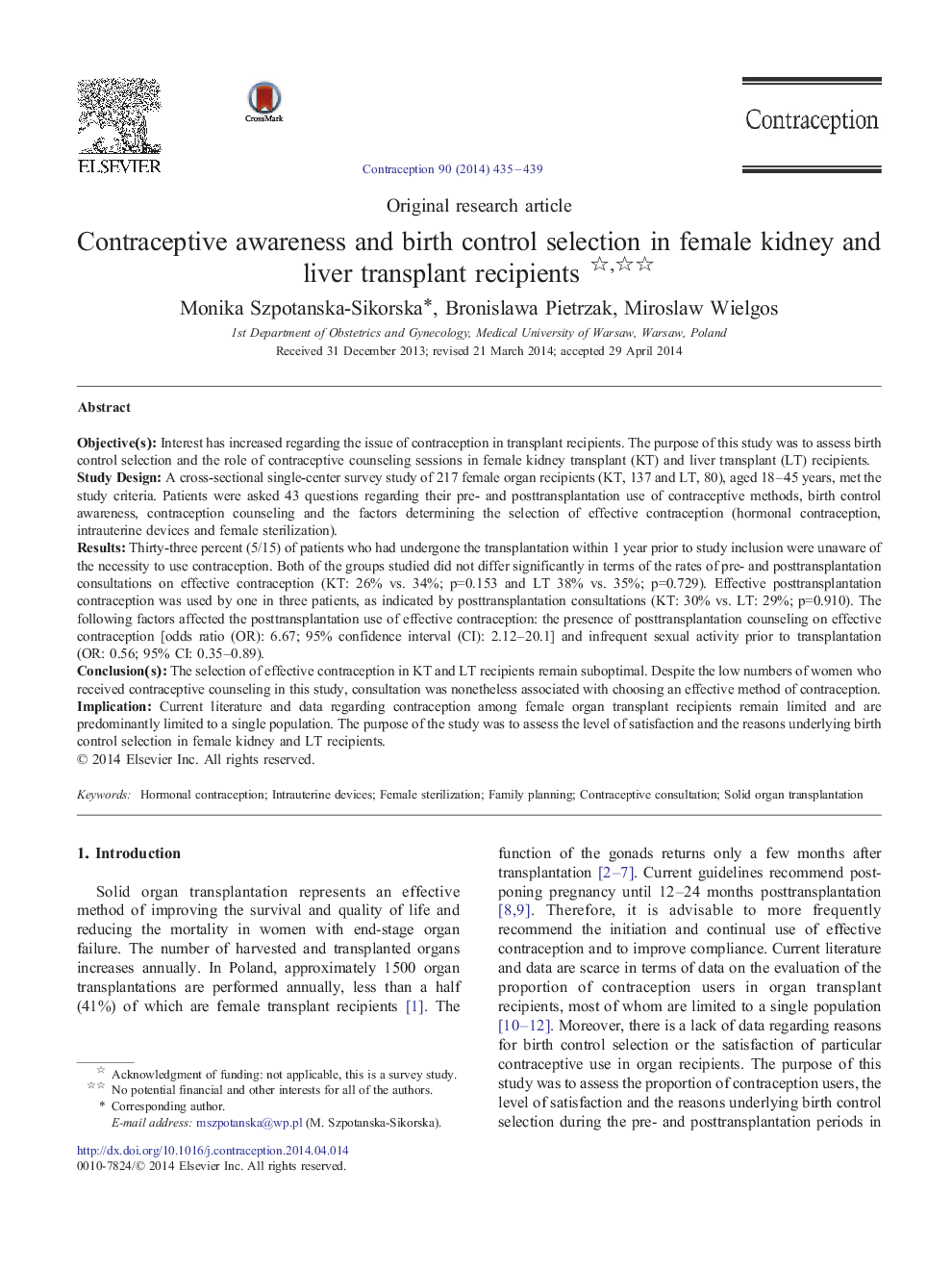| Article ID | Journal | Published Year | Pages | File Type |
|---|---|---|---|---|
| 6171153 | Contraception | 2014 | 5 Pages |
Objective(s)Interest has increased regarding the issue of contraception in transplant recipients. The purpose of this study was to assess birth control selection and the role of contraceptive counseling sessions in female kidney transplant (KT) and liver transplant (LT) recipients.Study DesignA cross-sectional single-center survey study of 217 female organ recipients (KT, 137 and LT, 80), aged 18-45 years, met the study criteria. Patients were asked 43 questions regarding their pre- and posttransplantation use of contraceptive methods, birth control awareness, contraception counseling and the factors determining the selection of effective contraception (hormonal contraception, intrauterine devices and female sterilization).ResultsThirty-three percent (5/15) of patients who had undergone the transplantation within 1 year prior to study inclusion were unaware of the necessity to use contraception. Both of the groups studied did not differ significantly in terms of the rates of pre- and posttransplantation consultations on effective contraception (KT: 26% vs. 34%; p=0.153 and LT 38% vs. 35%; p=0.729). Effective posttransplantation contraception was used by one in three patients, as indicated by posttransplantation consultations (KT: 30% vs. LT: 29%; p=0.910). The following factors affected the posttransplantation use of effective contraception: the presence of posttransplantation counseling on effective contraception [odds ratio (OR): 6.67; 95% confidence interval (CI): 2.12-20.1] and infrequent sexual activity prior to transplantation (OR: 0.56; 95% CI: 0.35-0.89).Conclusion(s)The selection of effective contraception in KT and LT recipients remain suboptimal. Despite the low numbers of women who received contraceptive counseling in this study, consultation was nonetheless associated with choosing an effective method of contraception.ImplicationCurrent literature and data regarding contraception among female organ transplant recipients remain limited and are predominantly limited to a single population. The purpose of the study was to assess the level of satisfaction and the reasons underlying birth control selection in female kidney and LT recipients.
